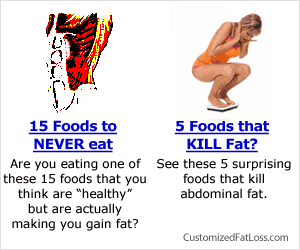Hands On Health
According to traditional Chinese medicine, good health depends on the optimum level and flow of chi, or qi. This subtle energy flows around our bodies in channels known as meridians – along which lie numerous points linking the organs and functions of the body. If chi becomes reduced or blocked – through illness, bad diet or lack of exercise, for example – we’re likely to suffer lack of energy, emotional problems, physical discomfort or even disease.
In China, a system of massage known as Tui Na (words which mean ‘push’ and ‘grasp’) has been used for many centuries to treat pain and common health problems, by clearing chi blockages. Today, almost all Chinese hospitals have a dedicated Tui Na clinic: this profound and invigorating form of massage, which works on the same points used in acupuncture, is regularly employed at the front line of medical care.
Although not as widely practised in Europe as acupuncture, Tui Na is available in a few places in Mallorca. One of these is at the Gran Hotel Sóller, where Mei Hong has been treating clients since 2005. They travel from all over the island and further afield: “One comes over from Barcelona,” she tells me. Hospitals and general practitioners also refer patients to her.
Mei qualified in Tui Na in Shenzhen, in her native China, having previously worked as a midwife for six years. She met Lars, a Swede, while he was working in China and they married after four years. A year later, the couple moved to Mallorca – Lars’ home since the 1980s:
“I followed love,” Mei says, smiling.
Although it takes a few minutes to tune in to her Oriental-accented English, her warm, caring nature is instantly obvious. This and her therapeutic skill have made her popular, keeping her busy – particularly during the period from June to September. “Sometimes I’m working from 8am until 10 or 11 at night!”
Trust is an important issue when having a massage and it’s reassuring to learn that Tui Na requires a long period of training: “It takes a minimum of three years to learn, and the first year was spent learning all about the body.” In the oasis that is her treatment room, a wall chart illustrates the body’s meridians and acu-points, but the full extent of her training is revealed when Mei shows me a weighty tome – crammed with Mandarin text and anatomical line drawings. “It’s a bit like learning to become a doctor – I know all the muscles, tendons and joints,” she explains. Such precise knowledge of the anatomy is essential, particularly when locating the source of referred pain.
What makes Tui Na such a beneficial form of massage? “It fixes the body, releasing blockages in tendons and muscles, and giving us feelings of being looser and lighter,” Mei explains. “More relaxed massages don’t have the same deep effects.” It’s most effective for mechanical problems, such as stiff necks, frozen shoulders and sciatica: “It can straighten out the twists and reduce inflammation.” Three or four sessions are typically required.
Sports injuries are common: “I have a lot of clients with golf-related problems, because their playing technique is wrong.” But even the daily routine of walking, lifting, and reaching, can result in problems: “I see in Europe that people carry a lot of heavy things,” Mei says. “They come out of Carrefour overloaded with shopping, which can lead to shoulder or elbow pain.” She believes self-care is important, so teaches post-treatment exercises for the back.
For the therapist, Tui Na is more physical than ordinary massage:
“In China, Tui Na therapists are often men.” However, the strength of the massage can be adjusted to suit the client; it’s suitable for any age and Mei’s clients include people in their eighties. She has treated a lot of people with cancer, but says it’s not for those undergoing chemotherapy. However, she tells me that post-operative treatment can be valuable to the healing process and, for example, she’s treated people who’ve had operations on tendons, or tumours successfully removed.
Mei also offers special massage for pregnant women and babies and, in China, taught baby massage: “They love having their face, back and stomach massaged – it helps them sleep longer (giving mums more of a rest) and makes them grow stronger and taller.”
Away from work, I wonder if Mei ever finds herself studying people to identify problems. “Yes,” she laughs, “I do it automatically. At the airport, for instance, I’ve said to Lars, ‘that person has a problem with their shoulder!'”
The solution to the physical strains of Mei’s own daily life isn’t surprising: “I massage myself,” she says. In practising Tui Na, she uses a small pointed tool made of yak horn to apply pressure to certain points of the body; Mei also keeps one of these tools at home, “to open blockages and for relaxation.”
When Mei tells me that Tui Na can make us look younger (“tension is ageing”), I need no more persuasion to hop onto her couch. Snug under a light duvet (with hot pillows of Chinese herbs applied to different points during the session), I happily surrender myself.
Like many Orientals, Mei is diminutive in stature, but the power of her hands belies their delicate appearance. She ‘reads’ my body, using her fingers to probe different points, and quickly locates blockages in my neck and shoulders (a common problem for computer users). Then, using skilful manipulation, Mei sets to work on turning me into a looser woman . . .
When I eventually emerge – slightly light-headed – into daylight and the bustle of Sóller, I feel that I’ve finally cast off the shackles of winter. And there’s a definite spring in my step.
Dr. Helen Cummins is the Editor of abcMallorca Magazine a high quality guide to mallorca printed in three languages including informative Articles about Mallorca, up to date Events Guide and a Business Directory.
You can visit the abcMallorca website to read the original article about Hands on health or related articles about health&wellness in Mallorca.






-SMALL.gif)
